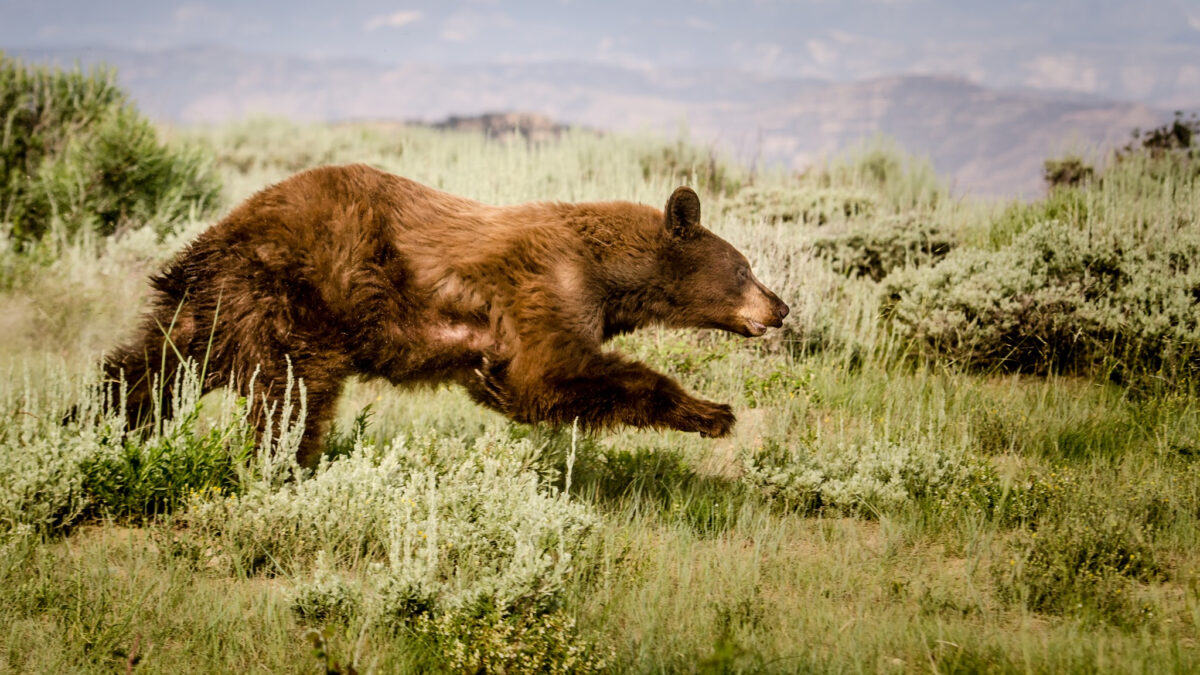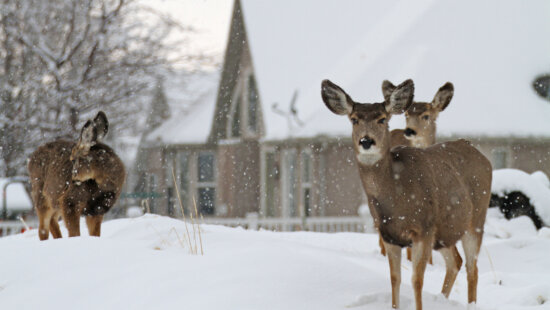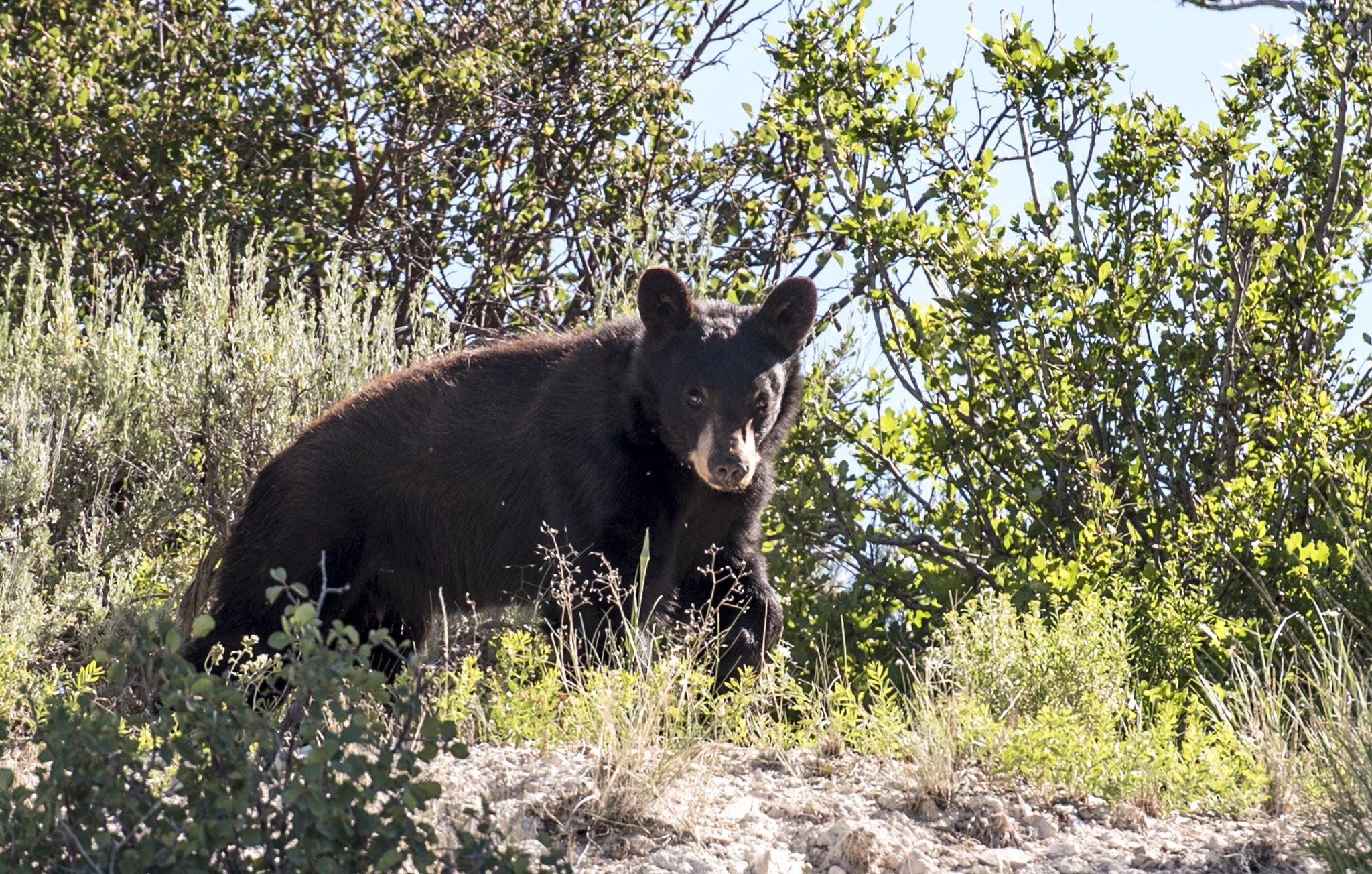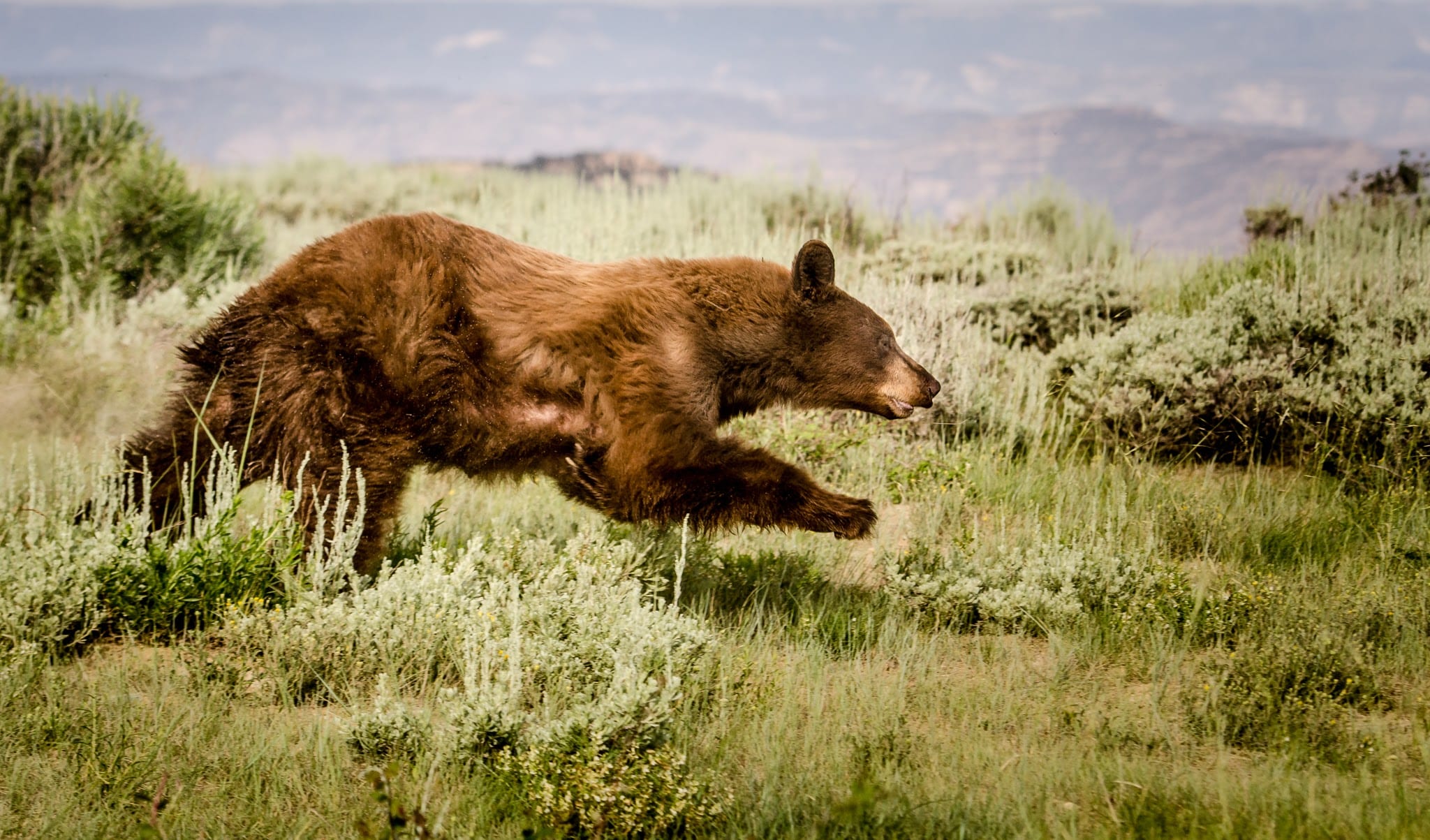Community
Bear aware: Utah summer safety tips to prevent black bear conflicts

Photo: Division of Wildlife Resources
SALT LAKE CITY, UT — As black bears begin emerging from hibernation across Utah, the Division of Wildlife Resources is urging residents and visitors to secure food, keep campsites clean and know how to respond during a close encounter.
Black bears are the only bear species in the state and roam nearly everywhere except the West Desert. They usually leave their dens in March or April, depending on snow conditions, and spend the spring eating plants and insects, which make up about 90% of their diet. Yet a powerful sense of smell can lure them to human foods left unattended in the outdoors, said Darren DeBloois, DWR game mammals coordinator.
“Even though they’re incredibly strong and surprisingly fast, black bears will typically do everything they can to avoid people,” DeBloois said. “When a bear finds food, though, that can all change. A bear may become aggressive toward animals or people it perceives as threatening the area where it found the food.”
Preventing conflicts
The DWR recommends several steps to reduce the chances of attracting a bear:
Bear-proof food and supplies. Store food, snacks, deodorant, toothpaste and other scented items in a locked trailer or a vehicle trunk rather than on picnic tables or inside tents.
Keep cooking areas clean. Wash utensils immediately, collect grease in a container to take home and wipe down surfaces after every meal.
Pack out trash. Place garbage in sealed bags and remove it from the site. A dirty campsite can attract bears long after people leave.
Never feed bears. Providing food can cause a bear to lose its natural fear of humans, often forcing wildlife officers to euthanize the animal for public safety.
Secure residential garbage. Store refuse in a bear-resistant container or keep cans in a garage until the morning of pickup. Clean cans regularly to lessen odors.
Remove backyard attractants. Birdfeeders, fruit trees, compost piles, beehives, pet food, unattended outdoor pets and barbecue grills can all draw bears into neighborhoods.
“If a bear visits the area after you leave and then someone comes in to camp, you’ve created a potentially dangerous situation,” DeBloois said.
What to do if you see a bear
Stand your ground. Do not run, lie down or play dead. Stay calm and give the bear space to leave.
Be ready to use bear spray or another deterrent.
Do not climb a tree. Black bears are excellent climbers and can reach speeds up to 35 mph.
Learn bear behavior. Standing, grunting or moaning typically signal curiosity, not aggression.
Fight back if attacked. Defend yourself with sticks, rocks, backpacks, water bottles — whatever is available — and do not quit.
When to report
Report any bear that acts aggressively, rummages through trash or fruit trees, or strays into city limits and other heavily populated areas, so biologists can relocate it, the DWR said.
Additional safety information is available at the Wild Aware Utah website.



















